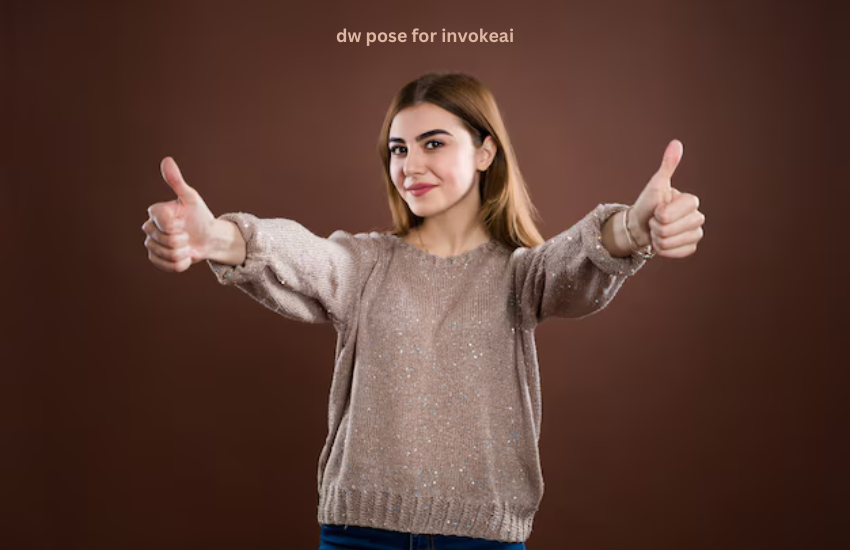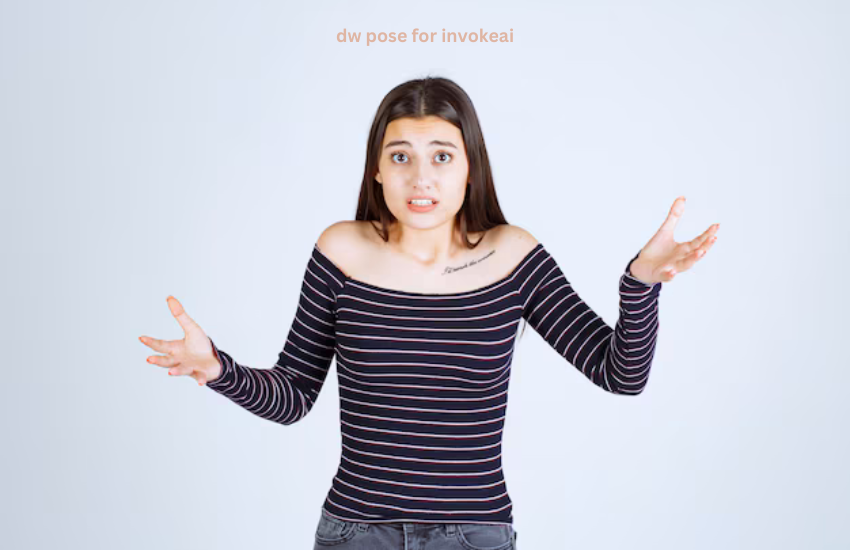Overview of InvokeAI
The Role of Poses in AI Art
Poses play a pivotal role in AI art creation, acting as the blueprint for generating human figures. The accuracy and expressiveness of a pose can significantly impact the final output, influencing everything from the realism of the figure to the emotional tone of the piece. Understanding the dynamics of poses is crucial for anyone looking to create compelling AI art, as the pose sets the stage for the entire composition. Whether the goal is to create a realistic human figure or an abstract interpretation, the pose is the starting point from which all other elements are built.

DW Pose: Definition and Origins
The DW Pose concept is rooted in the desire to achieve more natural and fluid human poses in digital art. Historically, poses in art have always been a challenge, requiring a deep understanding of anatomy and movement. DW Poses were developed to address these challenges, offering a standardized way to create and manipulate poses that are both realistic and versatile. By building on the knowledge of traditional art and incorporating modern technology, DW Poses have become a powerful tool for artists working in the digital realm.
Technical Aspects of DW Pose
From a technical standpoint, DW Poses involve complex processes such as 3D modeling and rigging. These techniques allow for the creation of poses that can be easily manipulated and adjusted, providing artists with the flexibility to experiment and refine their work. Pose estimation techniques are also a critical component, as they enable the AI to accurately interpret and replicate human poses based on various inputs. These technical elements are what make DW Poses so effective, offering a level of precision and control that is essential for high-quality AI art generation.
Implementing DW Poses in InvokeAI
To start using DW Poses in InvokeAI, users need to first set up the necessary tools and resources. This includes selecting the appropriate models, configuring the pose settings, and integrating DW Poses into their workflow. Best practices for using DW Poses involve a combination of experimentation and adherence to established guidelines, ensuring that the poses are both effective and expressive. By following these steps, artists can leverage DW Poses to enhance the realism and creativity of their AI-generated art.
Advantages of Using DW Poses
One of the primary advantages of DW Poses is the enhanced realism they bring to AI-generated art. Unlike more rigid or simplistic pose systems, DW Poses allow for a greater range of movement and expression, making the final output more lifelike and engaging. Additionally, the versatility of DW Poses means they can be adapted to suit a wide variety of artistic styles, from hyper-realistic portraits to abstract compositions. This flexibility is a key reason why DW Poses have become so popular among digital artists.
Challenges with DW Poses
Despite their many advantages, DW Poses do come with certain challenges. These include technical hurdles such as the complexity of setting up and manipulating poses, as well as the difficulty of balancing realism with creative expression. Artists may also encounter issues with pose estimation, particularly when working with more abstract or non-traditional art styles. However, with practice and the right tools, these challenges can be overcome, allowing artists to fully exploit the potential of DW Poses in their work.
DW Poses in Different Art Styles
DW Poses are highly adaptable and can be used across a wide range of art styles. In realistic art, they provide the precision and detail necessary to create convincing human figures, while in abstract or surreal art, they offer a starting point that can be manipulated to achieve a desired effect. The versatility of DW Poses makes them an invaluable tool for artists looking to experiment with different styles and push the boundaries of AI-generated art.

Community and DW Pose Sharing
The growing popularity of DW Poses has led to the development of a vibrant online community where artists can share poses, exchange ideas, and collaborate on projects. Platforms such as forums, social media groups, and dedicated websites offer a space for artists to connect and contribute to the evolving landscape of AI-generated art. Collaborative projects that utilize DW Poses are becoming increasingly common, showcasing the power of these tools to bring artists together and inspire new creations.
Ethical Considerations
As with any technology, the use of DW Poses in AI art raises important ethical questions. These include concerns about the potential for bias in pose representation and the ethical implications of using AI to generate art. Artists and developers must be mindful of these issues and strive to use DW Poses in a way that is respectful and responsible. By addressing these ethical considerations, the AI art community can ensure that the technology is used in a way that benefits everyone.
Case Studies
Several successful art projects have demonstrated the potential of DW Poses to enhance AI-generated art. These case studies highlight the versatility and effectiveness of DW Poses, showing how they can be used to achieve a wide range of artistic goals. By analyzing these examples, artists can gain valuable insights into how to incorporate DW Poses into their own work and maximize the impact of their AI-generated art.
Tools and Resources
There are numerous tools and resources available for artists looking to use DW Poses in their work. These include software and plugins specifically designed for pose manipulation, as well as a wealth of tutorials and learning resources that can help artists get started. By taking advantage of these tools, artists can quickly master the use of DW Poses and begin creating high-quality AI-generated art.
Future of DW Poses in AI Art
The future of dw pose for invokeai art looks bright, with new trends and innovations constantly emerging. As technology continues to evolve, we can expect to see even more advanced pose generation techniques, as well as new applications for DW Poses in a variety of artistic fields. These developments will undoubtedly continue to push the boundaries of what is possible in AI-generated art, opening up new possibilities for artists and creators.
FAQs on DW Poses for InvokeAI
What are the basic steps to start using DW Poses in InvokeAI?
To start using DW Poses in InvokeAI, you need to set up the necessary tools, select appropriate models, and configure the pose settings. Begin by exploring tutorials and resources available online to familiarize yourself with the process.
How do DW Poses compare to other pose types?
DW Poses offer a higher level of realism and flexibility compared to other pose types, making them ideal for a wide range of artistic styles and applications.
Can DW Poses be customized?
Yes, DW Poses can be customized to suit your specific needs. You can adjust the pose parameters, modify the figure’s anatomy, and experiment with different settings to achieve the desired effect.
What are the common mistakes to avoid when using DW Poses?
Common mistakes include overcomplicating the pose setup, failing to balance realism with creativity, and not taking the time to properly learn the tools and techniques involved.
Are there any alternatives to DW Poses for InvokeAI?
Yes, there are other pose systems available, but DW Poses are among the most versatile and widely used. Alternatives may not offer the same level of flexibility or realism.
How to troubleshoot issues with DW Poses in InvokeAI?
If you encounter issues with DW Poses in InvokeAI, consult the available documentation and community forums for guidance. Common troubleshooting steps include checking your software setup, ensuring all plugins are up to date, and experimenting with different pose settings.

